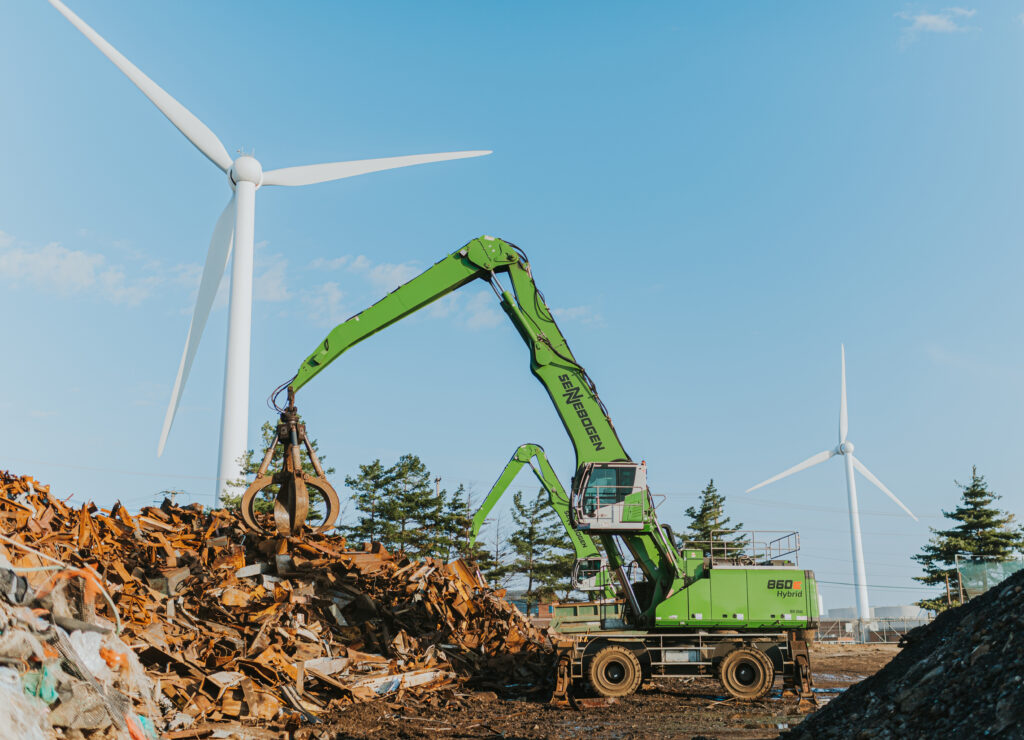Second Chance Employer Profile
Schnitzer Steel

From humble beginnings in 1906, when Russian immigrant Sam Schnitzer began buying and selling the scrap metal he could carry on his back in Portland, Ore., Schnitzer Steel has become a major global metals recycling company. Today it operates more than 100 recycling facilities throughout the U.S., western Canada and Puerto Rico. These facilities take end-of-life metal from refrigerators, vehicles, buses and other items and sell it to steel mills both domestically and in developing nations, shipping it from its seven deep water ports. The company also owns and operates the Pick-n-Pull chain of 55 self-service junkyards, where customers can select the auto parts they need, and a steel mill in McMinnville, Ore.
Schnitzer Steel employs about 3,500 workers, with positions including manual laborers, who dismantle the vehicles that come in; mechanics; forklift operators; crane operators; and pickers/sorters.
Second chance hiring practices
As a founding member of the Second Chance Business Coalition, Schnitzer Steel takes the practice very seriously.
“About 10 percent of our hires since 2020 have been second chance individuals,” says Erich Wilson, Schnitzer Steel’s chief human resources officer. “We hire between 800 and 1,200 employees per year, so that’s quite a significant number. And, they’ve been distributed across our entire operational footprint. We’ve hired second chance representatives at more than 75 of our locations.”
Being a part of the Second Chance Business Coalition has been significant for Schnitzel Steel. “It has given us a tremendous amount of exposure to companies that are in this space and external organizations that specialize in identifying and presenting second chance talent to corporations.”
The company does drug, alcohol and background checks, but only after an offer of employment has been made. Although there’s no special training for second chance hires, all new employees go through a training period – that covers safety and environmental protocol, among other things – at the facility where they work.
The company also has an extensive curriculum of about 300 learning opportunities, both online and in classrooms, that help its employees improve their writing, reading, technical and other skills.
Schnitzer Steel is proud of its second chance hiring efforts and regularly promotes them internally to its employees.
“We have quarterly all-employee town hall meetings and highlight our success through these,” Wilson says. “Our CEO also sends out weekly email messages to our entire workforce every Sunday. And we use this to highlight our accomplishments, among many other things.”
According to Wilson, the main challenge Schnitzer Steel has faced in developing second chance hiring initiatives has been finding and identifying the talent. Although it doesn’t actively seek out candidates who were formerly incarcerated, they are among the 600 to 700 applicants per week. About 300 positions are open at any given time.
The company has found that the biggest reward of conducting second chance hiring is loyal employees. “Our retail operation (Pick-n-Pull) has a high rate of turnover. and our second chance hires have demonstrated longer tenure, by 5-10%.”
Wilson offers advice for others who might be considering second chance hiring.
“Work within your organization to build the support. We didn’t experience it, but many organizations are challenged by the bias against hiring from this population,” he says. “Doing things such as being a part of organizations like the Second Chance Business Coalition really are needle movers. There are so many companies, like ourselves, that are in the space. And I would be happy to talk to anyone at any time.
In 2023 Schnitzer Steel Industries, Inc. rebranded to Radius Recycling.
